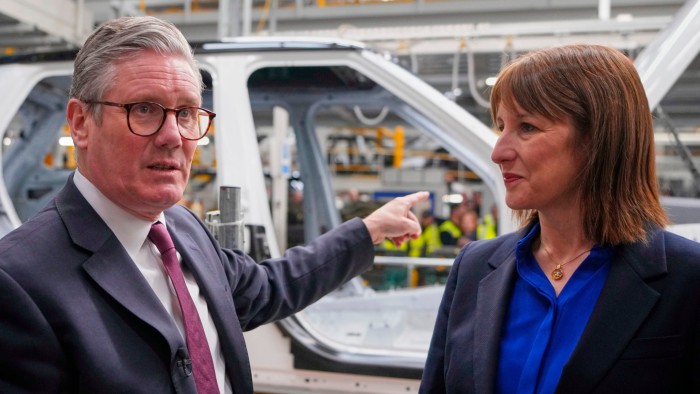Unlock the Editor’s Digest for free
Roula Khalaf, Editor of the FT, selects her favourite stories in this weekly newsletter.
Britain learnt the hard way about the importance of not letting governments mark their own homework. Former UK chancellor Kwasi Kwarteng’s unfunded tax cuts in September 2022 were pushed through without the usual independent audit from the Office for Budget Responsibility, the fiscal watchdog. Borrowing costs shot up, Kwarteng was sacked, and the so-called “mini” Budget was reversed. Current chancellor Rachel Reeves has now sensibly introduced a “fiscal lock”, ensuring that any major tax or spending decision would be subjected to the OBR’s assessment. But this hasn’t stopped the institution from being misused.
The OBR was established in 2010 to provide independent forecasts to judge whether the UK government meets its own fiscal rules. It does this relatively well, considering its tight budget and small staff of just over 50 people. But when chancellors run narrow margins against their rules, the fiscal watchdog’s economic projections — and their underlying assumptions — become overly influential in setting actual government policy. This happened at last month’s Spring Statement. Reeves had to make additional, eleventh-hour cuts to welfare payments when the OBR ruled that her initial plans would not generate the savings she anticipated.
Economic forecasting is an inexact science at the best of times. Right now, the fiscal watchdog’s projections face, in its own words, a “high degree of uncertainty” given global trade volatility. Indeed, 30-year gilt yields jumped to their highest since 1998 on Wednesday, amid turbulence in US Treasury markets. The OBR also relies on unreliable data inputs from the troubled Office for National Statistics. This adds to concerns that the body has been too optimistic with its productivity forecasts and unable to score the long-term growth effects of some policies. Reeves’ ill-advised decision to run a, historically low, £9.9bn headroom against her fiscal rule spotlights these problems.
What can be done? Ideally, governments should give themselves a bigger buffer against their fiscal rules, particularly in uncertain periods. Headroom rather than hurried cuts or revenue-raisers would then take the brunt of shifts to interest rate, inflation or growth forecasts. The OBR should also be better resourced. More economists do not guarantee better forecasts. But investment would surely improve the quality of its analysis. For instance, the body reportedly shares a single Bloomberg terminal with the Treasury.
With support, the fiscal watchdog could also do more detailed research on the growth effects of government policy. Last month, the OBR incorporated the impact of part of the government’s planning reforms on potential growth in its forecasts. On Tuesday, Prime Minister Sir Keir Starmer criticised the watchdog for not scoring the job creation impact of his cabinet’s welfare reforms too. But the government rarely gives the fiscal watchdog ample notice and detail on its policy plans. Even then, low staffing acts as a restraint on the OBR’s ability to do growth scoring or collaborate with other independent forecasters.
The OBR’s remit could also be strengthened. A more holistic fiscal assessment might consider whether the government has adhered to the spirit of the fiscal rules, not just the letter. For instance, successive chancellors have gamed rules by pencilling in fuel duty increases that never actually happen. The OBR could also place greater emphasis on the confidence bands around its projections.
The fiscal watchdog remains an important institution, not without its faults. But criticisms of its forecasting and influence on policy often act as a cover for poor fiscal decisions. Rather than shooting the messenger, it is best to ensure the OBR has the right tools to do its job.
